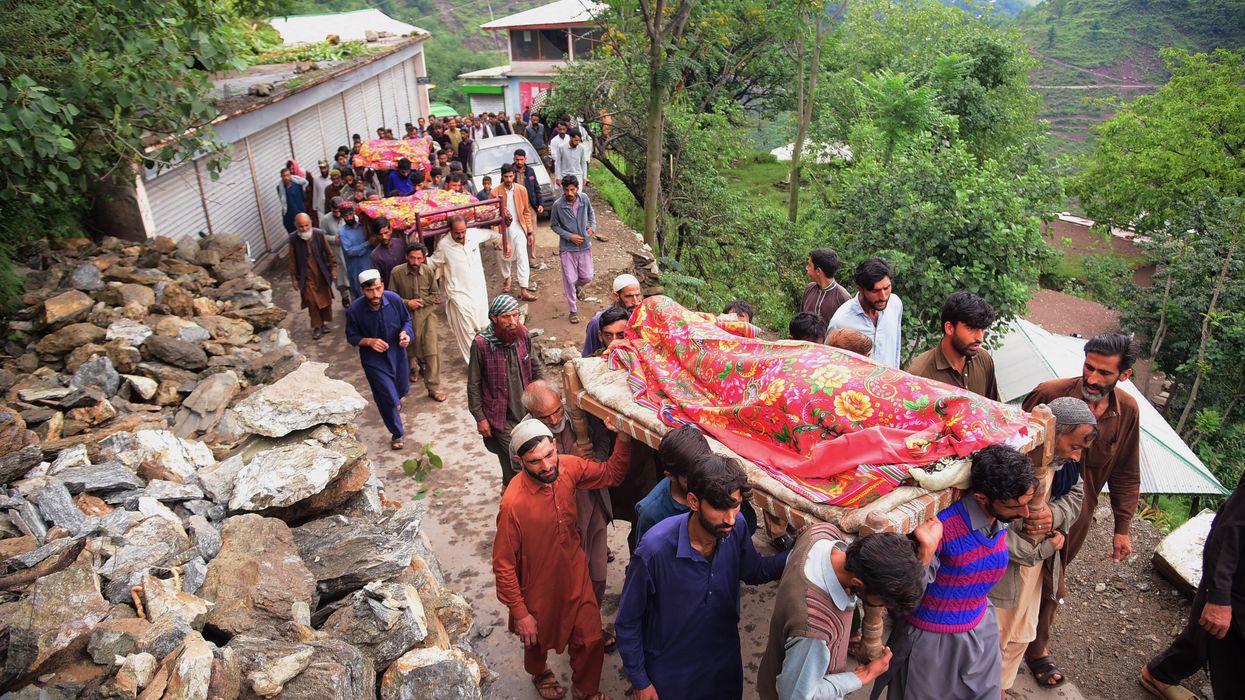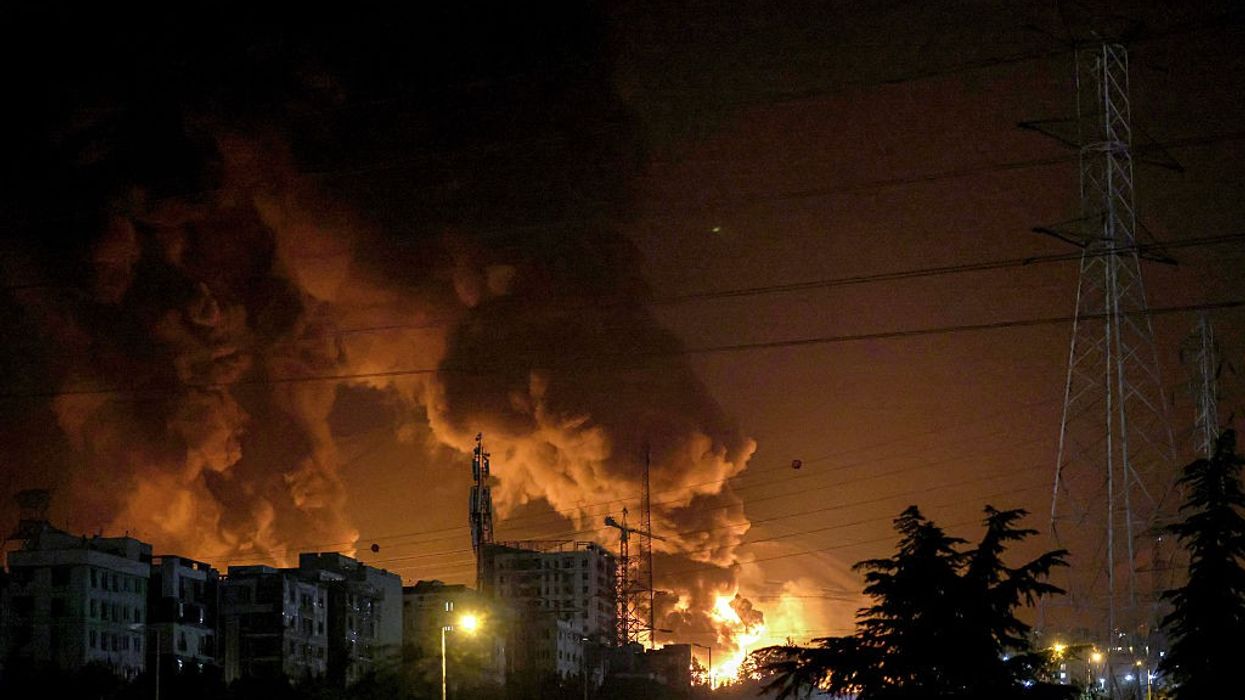"In those eight decades, a great deal of death and destruction has been meted out in war but the taboo against using nuclear weapons has survived and grown stronger," the yearbook says. "This is, as the Nobel Peace Prize Committee noted when awarding the 2024 Peace Prize to the movement of Japanese nuclear survivors (hibakusha), Nihon Hidankyo, 'an encouraging fact.' Nonetheless, new risks mean it is worth reviewing today's nuclear challenge."
In addition to the United States, the confirmed nuclear-armed nations are China, France, India, Israel, North Korea, Pakistan, Russia, and the United Kingdom. The global inventory is an estimated 12,241 warheads, most of which belong to the U.S. and Russia, according to SIPRI. As of January, about 9,614 of the weapons were in military stockpiles for potential use, including 3,912 deployed with missiles and aircraft.
"There needs to be a new, general understanding that nuclear weapons do not buy security and their existence demands balanced behavior by political leaders."
"In 2024, global security showed no overall improvement and some deterioration compared to the previous year. Several armed conflicts—not least in Ethiopia, Gaza, Myanmar, and Sudan—continued to escalate," the report states. "Russia's war of aggression against Ukraine continued, confrontation over Taiwan deepened, tensions on the Korean peninsula sharpened, and global politics were marked by increasing divisiveness and polarization sown by, among other causes of disputation, Israel's devastating offensive in Gaza."
The yearbook flags "new uncertainties" stemming from the November 2024 election of U.S. President Donald Trump, pointing out how "both allies and adversaries of the USA and all those in between found themselves navigating uncharted geopolitical and economic waters" in the wake of the Republican's return to office in January.
"Bilateral nuclear arms control between Russia and the USA entered crisis some years ago and is now almost over," the document details. "The one remaining bilateral U.S.-Russian nuclear arms control agreement is the New Strategic Arms Reduction Treaty (New START), agreed in 2010 and entering force in 2011, with a 10-year duration, extendable by five years upon mutual agreement."
Within days of U.S. President Joe Biden's 2021 inauguration, he and Russian President Vladimir Putin extended the treaty, now set to expire early next year—and, as the report notes, "there is no sign of negotiations to renew or replace it, and no sign on either side of wanting to do so."
Concerns extend beyond the U.S. and Russia. Although "the world's nuclear weapon inventory has been shrinking for almost 40 years," the yearbook explains, "in the last few years, the number of nuclear weapons in military stockpiles (deployed warheads and those in central storage available for use) has started to increase," specifically in China and India.
Earlier this year, India and Pakistan engaged in armed conflict—which Matt Korda, associate senior researcher with SIPRI's Weapons of Mass Destruction Program and associate director for the Nuclear Information Project at Federation of American Scientists, pointed to in a Monday statement.
"The combination of strikes on nuclear-related military infrastructure and third-party disinformation risked turning a conventional conflict into a nuclear crisis," Korda said. "This should act as a stark warning for states seeking to increase their reliance on nuclear weapons."
"It is critical to remember that nuclear weapons do not guarantee security," said Korda. "As the recent flare-up of hostilities in India and Pakistan amply demonstrated, nuclear weapons do not prevent conflict. They also come with immense risks of escalation and catastrophic miscalculation—particularly when disinformation is rife—and may end up making a country’s population less safe, not more."
Highlighting signs of a new nuclear arms race "gearing up," the publication warns that "compared to the last one, the risks are likely to be more diverse and more serious. Among the key points of competition will be technological capacities in cyberspace, outer space, and ocean space. Thus, the arms race may be more qualitative rather than quantitative, and the idea of who is ahead in the race will be even more elusive and intangible than it was last time round. In this context, the old largely numerical formulas of arms control will no longer suffice."
The report asserts that "there needs to be a new, general understanding that nuclear weapons do not buy security and their existence demands balanced behavior by political leaders. There also needs to be more training for diplomats in matters of nuclear arms control. This can make possible initial small steps towards reducing risk: hotlines, transparency, even informal understandings and formal agreements, such as no first use of nuclear weapons and nuclear weapon free zones."
"These will form guardrails against disaster," SIPRI stressed. "Together with the voices of an informed public, they could also be part of building the pressure for the three great powers to take the next steps in reducing their nuclear arsenals."
The publication was released after the International Campaign to Abolish Nuclear Weapons (ICAN) reported last week that "in 2024, the nine nuclear-armed states spent more than $100 billion or $190,151 per minute—on their nuclear arsenals—an increase of 11% from the previous year."
SIPRI's report also comes as Israel faced global criticism for targeting Iranian nuclear power facilities and scientists.
Trump—who sabotaged the Iran nuclear deal during his first term—suggested Sunday that American forces "could get involved" to support Israel in the conflict, which has killed civilians in both countries. U.S. Sen. Tim Kaine (D-Va.) on Monday introduced a war powers resolution intended to prevent the president from attacking Iran without congressional debate and authorization.
Meanwhile, the Iranian Foreign Ministry said Monday that the nation's legislative body is now drafting a bill to withdraw from the landmark 1968 Treaty on the Nonproliferation of Nuclear Weapons.




